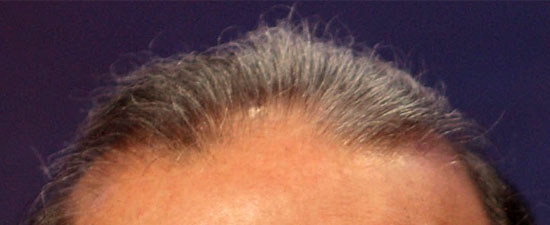Hi, I would like to request clarification on something. I saw a post where you mentioned Sertraline causes hair loss as well as Zoloft. I also saw on some posts where SSRI’s are said to cause hair loss. The questions is how common is this? I have seen different sources use different percentages to represent how rare or often this can occur. I ask this because online it appears as a significant amount of people have voiced their concerns about Sertraline or Zoloft possibly contributing to their hair loss. However, there have to be many people who simply will never come to these forums because they are not affected. Also, how long does the hair loss take? Some posts mentioned period from 2-8 days, while some people blame the meds after they have used them for 4-6 years.
I have been told by several physicians that hair loss with SSRI’s is simply an alergic reaction which is rare. Do you agree with that? Thank you for your help.

 Hair loss from SSRI (selective serotonin reuptake inhibitor) drugs are relatively uncommon, but they can occur. First and foremost you need to find out if there is a pattern to your hair loss. Is the hair loss everywhere or just confined to the front/top (in a pattern)? If the hair loss is happening in a pattern like those shown here, then it is most likely not from the drug. Hair loss from drugs will often impact the donor area, which is what we generally refer to as “permanent” hair not susceptible to genetic factors.
Hair loss from SSRI (selective serotonin reuptake inhibitor) drugs are relatively uncommon, but they can occur. First and foremost you need to find out if there is a pattern to your hair loss. Is the hair loss everywhere or just confined to the front/top (in a pattern)? If the hair loss is happening in a pattern like those shown here, then it is most likely not from the drug. Hair loss from drugs will often impact the donor area, which is what we generally refer to as “permanent” hair not susceptible to genetic factors.
Most doctors (and even the doctors that treat hair loss, such as myself) do not know the exact mechanism of why some people lose hair from certain medications. We must believe the patient when they say that they are noticing some correlation with the timing of starting these medications and the hair thinning, but these things are often very difficult to narrow down. It is just not that simple, as the patient may also have underlying genetic hair loss as well. Remember that more than 50% of the population have some form of genetic balding which has nothing to do with SSRIs or other medications! I do not think hair loss from SSRIs (or other medication in general) is an allergic reaction, but more of a rare side effect. If hair loss is caused by a medication, I do not think it would happen in the time frame of a few days, but more likely several weeks to months.
Finally keep in mind of the big picture, rather than focusing only on hair. You are taking a certain medication for a reason, such as the SSRI to treat depression. What you are experiencing with respect to hair loss may or may not be related, but the reason of WHY you are taking the SSRI or other medication is real and the pros and cons (risks/benefits) need to be discussed with your physician before taking any action.

 Read the rest of this article at
Read the rest of this article at  I am fine. Thank you for asking.
I am fine. Thank you for asking. That could be an allergy to an added ingredient in the minoxidil liquid or it could even be the minoxidil itself. The liquid is known to cause eye irritation in the 5% solution. The female version that you used is likely the 2% formula… so if you had the problem with your eyes with 2%, I’d expect you would see it from the 5%.
That could be an allergy to an added ingredient in the minoxidil liquid or it could even be the minoxidil itself. The liquid is known to cause eye irritation in the 5% solution. The female version that you used is likely the 2% formula… so if you had the problem with your eyes with 2%, I’d expect you would see it from the 5%.
